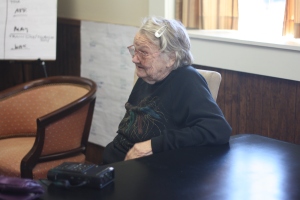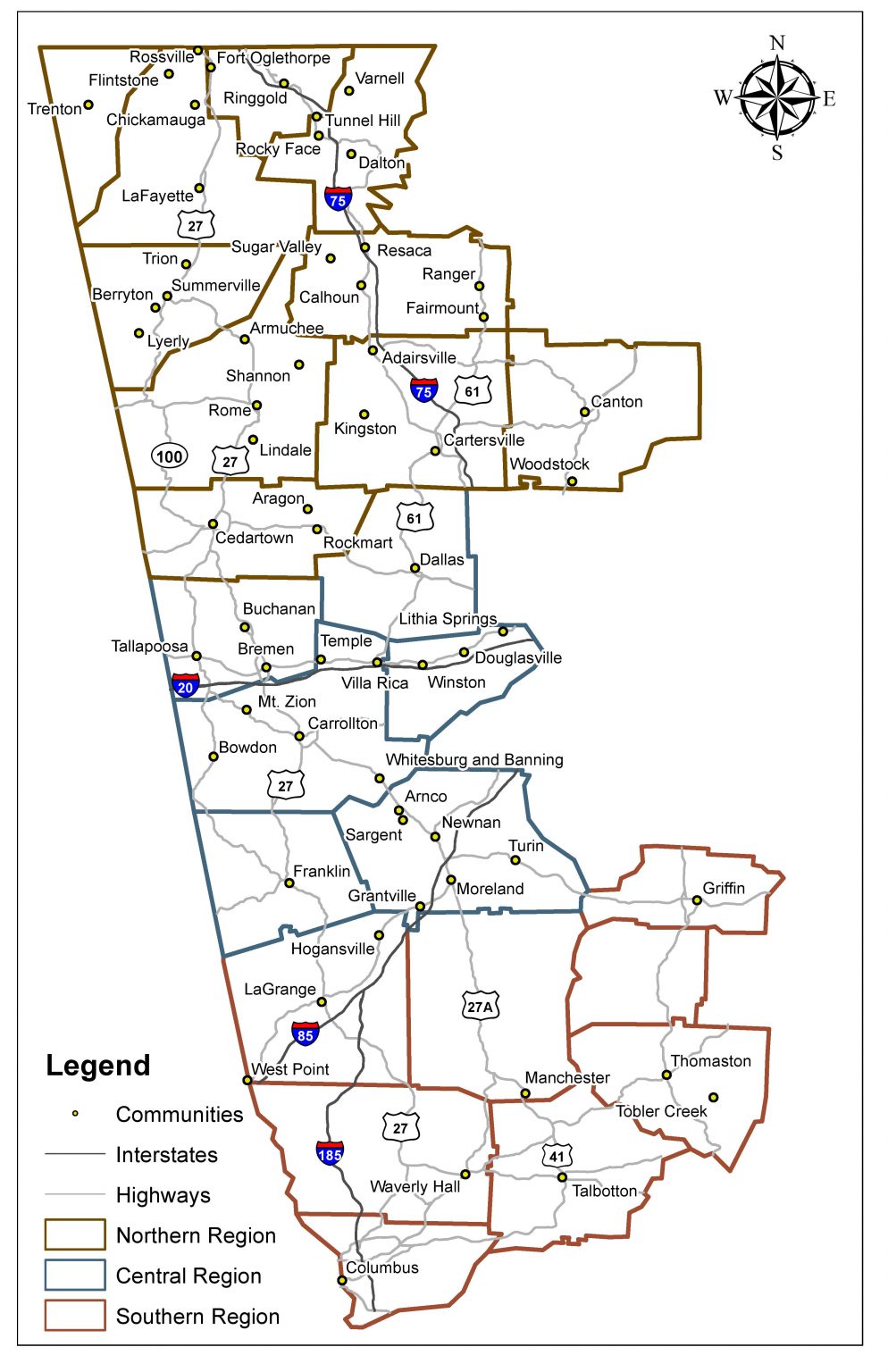Textile History, Women’s History, Our History
On November 10th, 2013, the West Georgia Textile Heritage Trail Team traveled to the Dalton Freight Depot in Dalton, Georgia, to host a History Day where staff would gather the recollections, artifacts, and photos of people who had connections to the textile history of the Dalton area. One of the people who came to give to see us was a woman by the name of Rosa “Midge” Murphy. Midge is a very strong woman who began working in textile mills in 1953 when her first child was 3 years old. She had to go to work to earn money for her family, but she also found ways to enjoy her work and, judging by her stories, she did it very well. In an era where women faced many limitations in the working world because of their gender, Midge used perseverance, creativity, and determination to make a career in the textile industry and earn the respect of her male bosses and coworkers.
Over the course of 30 years, Midge worked in multiple textile mills and accumulated a host of skills and priceless experiences. At one mill, the quality of her work and the strength of her personality earned her so much respect, when they opened up a mill in England in 1968, they asked her to go abroad to the new branch to train the new employees. Though pleased by the request, she decided not to go because her son was graduating from school that year and she wanted to be there when he graduated.
At another carpet mill, Midge became the first woman in Dalton to run a new type of carpet-making machine because the male machine operator who normally did the job frequently got called away for other tasks. On one particular occasion, when she was called to stand in, yet again, for the male operator, she realized that she was doing this man’s work for LESS pay than he was making, due in part to her gender. In the course of her interview, she told us that when she came upon that realization, she simply sat down and refused to operate the machine, telling her superior, “Until I get operators pay, I ain’t running that d— machine!” She was then escorted to the “boss” (a fellow called “Big Joe”) where her supervisor explained the situation and asked for an intervention. After hearing Midge’s story, Big Joe asked if she could do all of the tasks required of an operator. When her supervisor replied that she could, the boss replied that, since that was the case, she should probably make operator’s pay. By demanding (and receiving) pay equal to that of her male counterparts in the Dalton carpet mills, Midge achieved what many women are still fighting for to this day!
Midge’s adventures did not end there. She later worked at Normandy Carpet, another carpet mill in Dalton, and her skills won her a position where she did a good amount of traveling for the company, training regional employees on how to operate new machines. She shared with us that she and her female co-worker (who formed a sort of team with Midge) were often received with a bit of condescension by the men that they were to teach until they had proven their considerable skill.
After a visit to her nephew in Warner Robbins, Georgia, in 1980, Midge decided to leave Normandy Carpet to open up her own tailoring business where she utilized the skills she had acquired throughout her years in the textile industry. Her shop was quite successful for over two decades and she frequently did work for the US military. Eventually, because of her son’s concern for her health, she closed down her business and now only works part-time, spending the rest of her hours volunteering by reading to children and dressing up as Mrs. Claus for the holidays. She also spends a good amount of time quilting and giving some of her creations to new mothers for their babies.
Midge was not only an important player in the textile history of Dalton but was also a great asset to the women’s movement in the late 20th century.




Leave a Reply